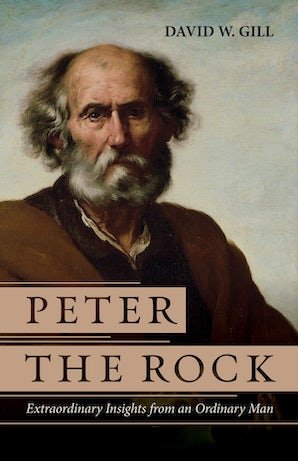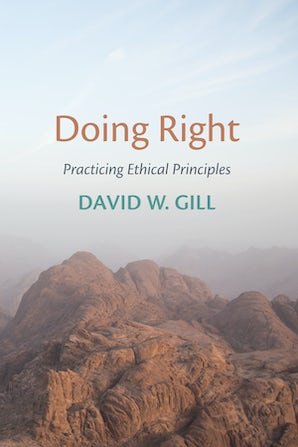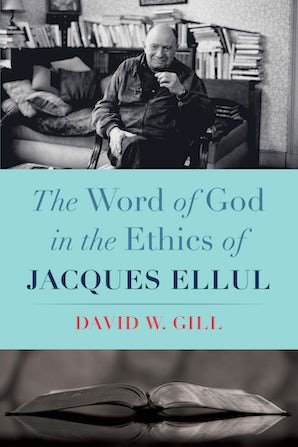Welcome
Welcome to the personal website of David W. Gill. I tell my story and report on my life’s work more fully in my 2022 book What Are You Doing About It? The Memoir of a Marginal Activist but this website fills in other parts of the picture and makes available some of my essays and videos. I am pretty much a life-long Oakland and Berkeley, California, city boy, and a life-long radical Christian who loves Jesus and the Bible, justice and peace-making, meaningful and ethical work, jazz, wine, and good food, reading, discussion, and learning, my students and colleagues, Jacques Ellul and France, my wife and life-long love Lucia, my kids, grandkids, 62nd Street neighbors, and friends.
Contact: dwg@davidwgill.org
My twin vocational passions (my missions) have been (1) exploring, developing, and articulating a more radically biblical Christian ethic, especially related to work; and (2) exploring, developing, and articulating a more constructive approach to building ethically healthy organizations in a diverse, global marketplace—where Christians, Muslims, Hindus, atheists, agnostics, and everyone else meet and work. My primary jobs were as professor of theological or business ethics for forty years at New College Berkeley, North Park University (Chicago), St. Mary’s College Graduate School of Business (Moraga), and Gordon-Conwell Theological Seminary (Boston)—but I also did important time as a factory worker, church pastor, business consultant, and non-profit entrepreneur and administrator.
Here, right up front, are my ten published books, which themselves tell much of my story. Nine of the ten are now available from Wipf & Stock Publishers in Eugene, Oregon.
What Are You Doing About It? The Memoir of a Marginal Activist
(Wipf and stock, 2022). xix., 434pp.
https://wipfandstock.com/9781666750454/what-are-you-doing-about-it
I decided it was now or never if I wanted to write a memoir. Part One (“Incubators”) explores my ancestral roots, family background, and youth. Part Two (“Shapers”) is about how and where my voice and vocation were clarified from age 18 to 33. Part Three (“Channels”) describes my experiences and initiatives as professor of business ethics and Christian ethics—and sometime organizational ethics consultant, pastor, and entrepreneur. My life was largely a response to my dad’s question (when I griped about anything) “what are you doing about it?” Always an activist, always drawn to the margins not the mainstream—that’s me.
Workplace Discipleship 101
(Hendrickson, 2020), xxii, 265 pp.
www.hendricksonrose.com/p/workplace-discipleship-101/9781683073116
This is kind of a “legacy” book for me, my “insider’s” description of how Christian faith and values can (and I think “should”) modify and strengthen a positive Christian presence in today’s diverse workplaces (any work, anywhere). Church is fine and important but my passion and calling have always been to explore how Jesus and the Bible relate constructively to our life, our studies, and especially our work outside the walls of the church. I tried to write about it in an introductory way, hence “101: A Primer.” Available in print, e-book, and audiobook formats.
It’s About Excellence: Building Ethically Healthy Organizations
(Executive Excellence, 2008; Wipf & Stock, 2011), 222 pp.
https://wipfandstock.com/9781610976091/its-about-excellence/
This is one of my favorite books: a straight-ahead introduction to business and organizational ethics for a secular, diverse marketplace. This grew out of my years of teaching ethics to MBA students and consulting for many businesses. How do we decide on the “right thing” when we don’t share the same values or philosophy of life? My approach is to focus on building healthy, positive, mission-driven cultures—and not get stuck in a negative “damage-control” approach focused on dilemmas and rules. Build health, don’t just treat disease. Emphasize a “wiki-ethics” based on everyone’s expertise, ownership, and responsibility.
Peter the Rock: Extraordinary Insights from an Ordinary Man
(InterVarsity, 1986; Wipf & Stock, 2020), 208 pp.
https://wipfandstock.com/9781532698361/peter-the-rock/
Peter is my favorite character in the New Testament. There are tons of books on Jesus and Paul but not so many on Peter—whose story looms across all four Gospels, the Acts, and the Letters (two of which bear his name). He is the thread through the whole story. We can relate to his ups and downs. This book was written in 1984-85 while on sabbatical in Bordeaux where my mentor Jacques Ellul read and discussed the manuscript with me. For me, it was a kind of probing of the basic meaning of Christianity, what we believe and how we behave.
The Opening of the Christian Mind
(InterVarsity, 1989; Wipf & Stock, 2022), 142 pp.
https://wipfandstock.com/9781666747249/the-opening-of-the-christian-mind/
A famous book in the 1980s wasThe Closing of the American Mind,which inspired my title. I felt then and always that God wanted us Christians to have open minds—not empty and uncommitted but open to God, people, and history, in pursuit of the good, the true, and the beautiful. Bold but humble, serious but joyful. I wrote about not just the intellectual characteristics but some strategies for life-long learning and growth. It is a kind of philosophy of life and a manifesto for the kind of educational programs we were developing at New College Berkeley in the 1970s and 1980s. This became the best-seller among all the books I have written.
Should God Get Tenure? Essays on Religion & Higher Education
(Eerdmans, 1997; Wipf & Stock, 2022), xvi, 245 pp.
https://wipfandstock.com/9781725265493/should-god-get-tenure/
For this book I was the author of both the Introduction as well as a chapter, “Ethics With and Without God,” and editor of fifteen other chapters/essays by luminaries such as Richard Mouw, Merold Westphal, Ward Gasque, Jill Baumgaertner, and Mark Noll. I was, during 1994-95, the 20thin a line of annual “Distinguished Visiting J. Omar Good Professors” at Juniata College in Pennsylvania. Each of us was arguing that in our own fields of study, the university would be enriched by paying serious attention to God and people’s religious traditions. Give God (and religion) “tenure” in that sense.
Becoming Good: Building Moral Character
(InterVarsity, 2000; Wipf & Stock, 2022), 237 pp.
https://wipfandstock.com/9781666747300/becoming-good/
All my career I have been an ethics professor: how can we understand and pursue the “good” and the “right”? I learned a lot from classical and contemporary thinkers but often felt that Christian ethics was far too influenced by Enlightenment, (rationalistic, abstract, individualistic) moral philosophy and by the authors’ social and economic locations. Influenced by Alasdair MacIntyre, Stanley Hauerwas, and Peter Kreeft, I came to see virtue ethics (character and community) as a critical missing piece of an organically biblical ethics. The Sermon on the Mount’s Beatitudes and the virtues of faith, hope, and love are the answer.Without good character and community, we lack the insight and strength to do the right thing.
Doing Right: Practicing Ethical Principles
(InterVarsity, 2004; Wipf & Stock, 2022), 343 pp.
https://wipfandstock.com/9781666747270/doing-right/
Doing Rightwas a project begun back on sabbatical in Bordeaux in 1985 but it was always a work in progress as I taught innumerable courses in Christian ethics during the 1970s, 1980s, and 1990s and deepened my approach. I set it aside to writeBecoming Goodas the essential foundation. But I came to believe the best way to teach Christian ethics was through a study of the Ten Commandments, interpreted as ten guides to freedom. love, and justice. I was deeply influenced by Jewish writers like Andre Chouraqui but above all by the way Jesus and Paul explicate their significance. I still think this might be the best book I ever wrote and my best contribution to the field of Christian or theological ethics.
The Word of God in the Ethics of Jacques Ellul
(Scarecrow Press, 1984; Wipf & Stock, 2022), 213 pp.
https://wipfandstock.com/9781666747331/the-word-of-god-in-the-ethics-of-jacques-ellul/
This originated as my 277-page 1979 PhD dissertation at USC, based on my reading and research from 1972 onward. It was nominated for publication as Monograph No. 20 in a series published by the American Theological Library Association. I dragged my feet for five years until I finally abridged it a little and it was published. Bordeaux professor Jacques Ellul is best known for his classicThe Technological Society(ET 1964) but also wrote many books on theological ethics. My dissertation examined how he creatively moved from ancient Scripture and Jesus Christ to contemporary application in the technological and political arenas.
Political Illusion & Reality: Engaging the Prophetic Insights of Jacques Ellul
(Wipf & Stock, 2018), xiv, 299 pp.
https://wipfandstock.com/9781532649066/political-illusion-and-reality/
Over the decades Jacques Ellul continued to have major influence on my thinking about not just theology but technology, politics, and culture. I corresponded with him from 1972 to 1981, met with him personally from 1982 to his death in 1994. Since 2000 I have been founding president of the International Jacques Ellul Society (www.ellul.org). I organized our 2016 biennial IJES conference at my alma mater, UC Berkeley, on Ellul’s contributions to our thinking about politics and the state. David Lovekin and I edited this amazing collection of conference papers. My chapter was on “The Political Theology of Jacques Ellul.” “Exister, c'est résister!”










